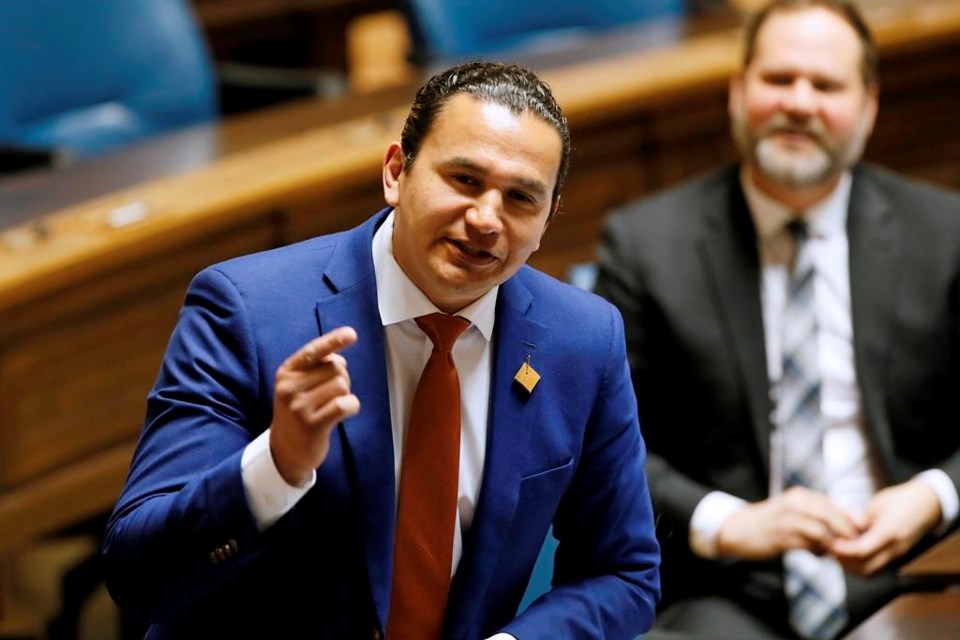WINNIPEG — Manitoba's Opposition New Democrats will improve health care, keep electricity rates low and simultaneously reduce the deficit if they win the next election, leader Wab Kinew said Sunday at the end of the party's annual convention.
But details on how that might be achieved will only be revealed closer to the provincial election slated for next October.
"We will run on a fully costed platform that will show a path to balance, and we also are going to have a platform that outlines a path to fixing health care and (outlines) affordability measures," Kinew said in an interview.
Opinion polls for the last two years have suggested the NDP are leading the governing Progressive Conservatives. Tory support dropped sharply during the COVID-19 pandemic. At one point, dozens of patients were flown to other provinces due to a shortage of beds.
At the same time, Manitoba has continued to face an increasing debt load. A string of annual deficits started under the former NDP government in 2009 have continued under the Tories, with the exception of a small surplus the year before the pandemic began.
One political analyst said it is no surprise the NDP is not revealing its plans at this stage, given their lead in the polls and public discontent with the Tories.
"I think their area of vulnerability would be to talk extensively about their fiscal policy plans, and by that I mean both their taxing and spending decisions," said Paul Thomas, professor emeritus of political studies at the University of Manitoba.
Kinew said an NDP government would look at "inefficiencies" in government spending as part of its plan. The NDP proposed raising income taxes on high-earners in the last two elections, but has not yet said whether it will make that promise again in 2023.
A New Democrat government would also ensure consumer rates at Crown-owned Manitoba Hydro remain affordable, Kinew said, but he would not commit to a specific maximum rate increase.
"I think that's part of the announcement that we look forward to rolling out in the future," Kinew said.
Manitoba Hydro has seen its debt triple in recent years due largely to cost overruns on two megaprojects started under the former NDP government. Consumer rates are set by the Public Utilities Board, the provincial regulator, which has approved annual hikes of between two and five per cent over the last two decades.
Earlier this year, Moody's Investors Service warned rate increases have not been high enough to keep up with rising costs, threatening the utility's already "weak financial metrics."
The Progressive Conservative government is currently passing a bill through the legislature that would cap rate increases at a maximum of five per cent or the rate of inflation — whichever is lower. It would also set firm debt-reduction targets that critics say would lead to higher-than-necessary rate hikes.
The NDP has promised to keep the Public Utilities Board free from government constraint while also keeping rates down. But the public will have to wait for those plans as well, Kinew said.
"I think we do have a good strategy ... we'll announce it as we get closer to the election."
This report by The Canadian Press was first published Oct. 16, 2022
Steve Lambert, The Canadian Press



